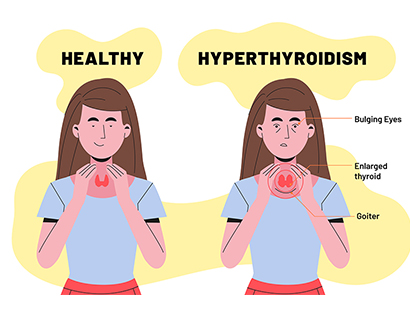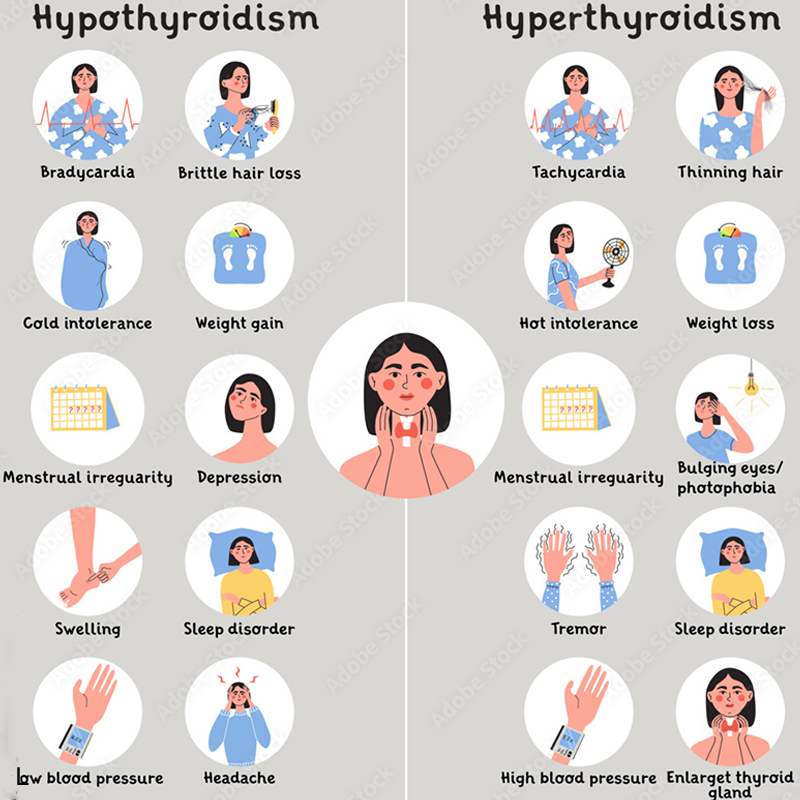Thyroid
Thyroid
Your thyroid is a small, butterfly-shaped gland located at the front of your neck under your skin. It’s a part of your endocrine system and controls many of your body’s important functions by producing and releasing (secreting) certain hormones. Your thyroid’s main job is to control the speed of your metabolism (metabolic rate), which is the process of how your body transforms the food you consume into energy. All of the cells in your body need energy to function.


What Thyroid does?
As an endocrine gland, your thyroid makes and secretes hormones. Your thyroid produces and releases the following hormones:
- Thyroxine (T4): This is the primary hormone your thyroid makes and releases. Although your thyroid makes the most of this hormone, it doesn’t have much of an effect on your metabolism. Once your thyroid releases T4 into your bloodstream, it can convert to T3 through a process called deiodination.
- Triiodothyronine (T3): Your thyroid produces lesser amounts of T3 than T4, but it has a much greater effect on your metabolism than T4.
- Reverse triiodothyronine (RT3): Your thyroid makes very small amounts of RT3, which reverses the effects of T3.
- Calcitonin: This hormone helps regulate the amount of calcium in your blood.
